Five Overlooked Rolling Stones Album Classics

Jan. 13, 2022
Any pop music fan past infancy knows the Rolling Stones, a band so foundational that America's best-known rock music magazine more or less appropriated its name.
But time has trimmed the great band's recorded legacy. Thirty or forty years ago, fans and critics regarded the Stones first and foremost as a British Invasion band, hot on the heels of the Beatles. Their biggest song was "Satisfaction," the monster hit that defined their first iteration as a blistering blues-rock band, with the devastating one-two guitar punch of Keith Richards, the world's best white Chuck Berry disciple, and Brian Jones, Britain's answer to slide-master Elmore James. Back then, critics generally regarded Beggars Banquet (from 1968) as the end of their greatest era, rather than the beginning.
Nowadays, many Stones fans content themselves with a collection that starts with Beggars Banquet and ends three records later, with the double-disc sleeper masterpiece Exile on Main Street. Those records bookend an era now generally defined as the Stones' finest, rounded out with Let it Bleed and Sticky Fingers. Toss in Some Girls, the band's autumnal comeback, or any respectable singles collection, and you've got the Top 5 on your typical roundup of Best Rolling Stones Albums. (Here's another. And another.)
But there's a lot to be said for the nine studio albums (give or take) that preceded Beggars Banquet. Those records, and the attendant singles, contain the majority of the songs for which the Stones will be remembered, the ones most likely to be shot into space or preserved by the Smithsonian, from "It's All Over Now" to "Time Is on My Side" to "The Last Time" to "Satisfaction" to "Paint It Black" to "Ruby Tuesday" to "Jumpin' Jack Flash."
AllMusic is one of the few contemporary music sites that champion those early sides. AllMusic critics award five stars, their rare "masterpiece" rating, to four Stones LPs released between 1964 and 1967, including titles, such as The Rolling Stones, Now!, that won't register with most millennials. At moments, and throughout the sublime Aftermath and Between the Buttons, the Stones don't sound like a bunch of white guys from Britain paying homage to Chess Studio or Muscle Shoals: They sound like themselves, and no one else.
Here are four of the best LPs from those years, and one underrated title from the end of the band's last golden era: five overlooked Stones classics.
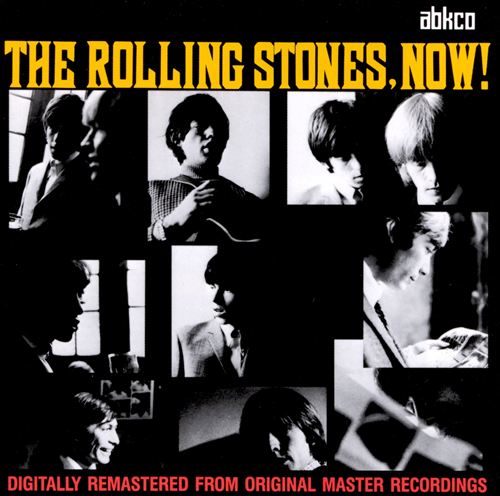
The Rolling Stones, Now!, 1965
Back in the day, any serious Stones fan owned at least a couple of their early, cover-heavy, hard blues LPs. Of those early releases, The Rolling Stones, Now!, may be the best. The album came out as an alternate U.S. edition of a British release titled Rolling Stones No. 2, and it arguably plays better. The opening cover of Solomon Burke's "Everybody Needs Somebody to Love" rocks loose and limber, a perfect distillation of the band's mature, confident blues attack. "Down Home Girl" is raw, rough and hilarious. "You Can't Catch Me" covers Chuck Berry as effortlessly as the Byrds of that era covered Dylan. "Heart of Stone" is the classic, but even the weaker Jagger-Richards originals and the side-two covers sound purposeful and powerful.
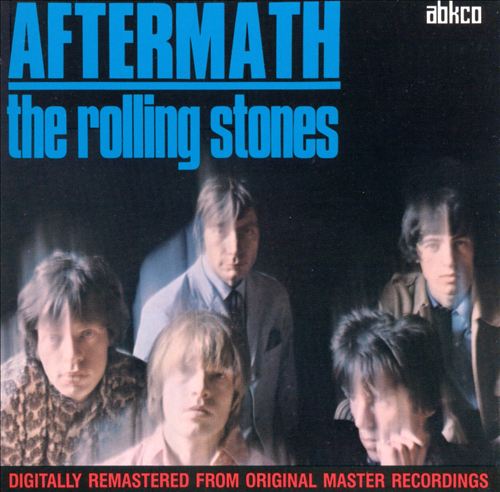
Aftermath, 1966
The band's sixth American studio album, released just three years into their recording career, stands as their first full slate of Jagger-Richards compositions. And that is a massive accomplishment: The band's previous U.S. album, December's Children, had opened with four consecutive covers. Aftermath is a dark masterpiece. Pressed to match the Beatles and Dylan for compositional chops, Richards came up with the nihilist anthem "Paint it Black" alongside beautiful folk chestnuts like "I Am Waiting" and "Lady Jane," the Motown homage "Think" and the hateful "Under My Thumb." The British version adds "Mother's Little Helper," a song about housewives on Valium that sounds like demonic Kinks, and "Out of Time," another soul workout as good as anything on the American release. The Glimmer Twins would never want for songs again.
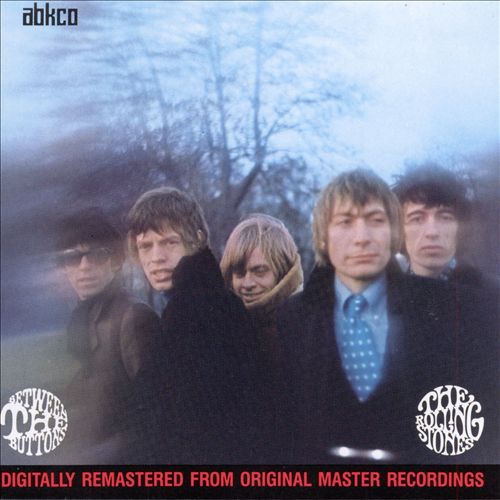
Between the Buttons, 1967
This album, released just a year after Aftermath, marks the high point of the Stones' second era, a span of roughly two years during which they sounded like an actual British band. They had evolved past their American R&B influences, and they hadn't yet tapped the folk blues, country and Americana veins that would color their releases from Beggars Banquet through Exile. Yes, they channeled Dylan and some of their U.K. peers on Aftermath, but there's something reassuring about hearing this British band sounding British. This is the album – the superior U.S. version, at least – that gave us "Let's Spend the Night Together," the first of many Jagger-Richards classics to push the lyrical envelope on groupies, drugs and sex. The other classic is "Ruby Tuesday." But there isn't a weak song among the lesser-known cuts that round out the album, from the drugs-and-airports boogie of "Connection" to the darkly Dylanesque "Who's Been Sleeping Here" to the achingly lovely "She Smiled Sweetly." I'll get shouted down for saying it, but this is my favorite Stones album.
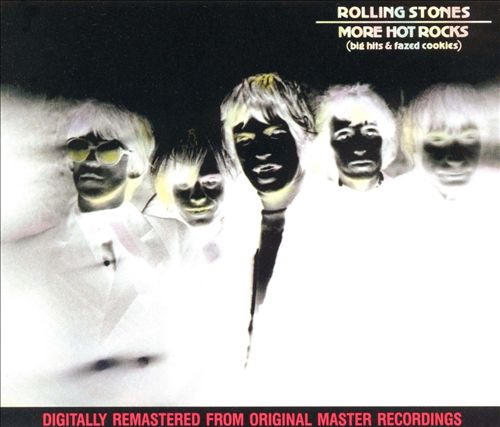
More Hot Rocks (Big Hits & Fazed Cookies), 1972
Mostly forgotten today, More Hot Rocks emerged in 1972 as a companion piece to Hot Rocks, the two-disc greatest-hits package. Hot Rocks is canonical, but More Hot Rocks is utterly fascinating. The obvious comparison point is Dylan's single-volume Greatest Hits and the double album Greatest Hits Volume II, which crammed in everything weird and beautiful that hadn't fit on the first collection. The same goes here. The first side of More Hot Rocks covers a half-dozen timeless singles, equal to anything on Hot Rocks, a set that had somehow omitted "Tell Me," "The Last Time" and "It's All Over Now." Side Two, though, is where things get really interesting. Here the collection lurches into the dark psychedelia and demented folk of the band's brief anglophile era. Sides two and three reveal several beautiful Jagger-Richards songs (yes, the Twins were capable of beauty), setting the psych-pop gems "Dandelion," "She's a Rainbow" and "Child of the Moon" alongside the darker-hued "Have You Seen Your Mother, Baby, Standing in the Shadow?" and the Beatle-esque "We Love You," a performance attended by actual Beatles. Side Four revisits the band's earliest work: the highlight is their cover of "Poison Ivy," a song about venereal disease tailor-made for these boys.
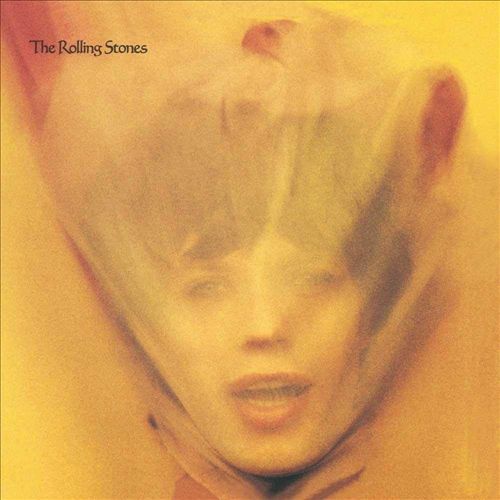
Goats Head Soup, 1973
For most critics, the Stones' 13th U.S. album marks the beginning of the end, the first Stones record since Their Satanic Majesty's Request, the band's unnecessary answer to Sergeant Pepper, to feature an uneven set of songs. Indeed, if one ignores a few extraneous U.S. releases from the prior decade, Goats Head Soup was probably only the second proper Stones album to feature a truly mixed bag of songs. The album makes an easy target for critics, coming at the end of an era of recording and touring that most writers now regard as the peak of the entire Stones endeavor. But it remains a very good album, especially when contrasted to the progressively weaker releases that followed. "Angie" was the hit, and it's a lovely song, a standout on a shaky first side. "Doo Doo Doo Doo (Heartbreaker)" is a powerful sociopolitical statement, and "Coming Down Again" contains one of Keef's cheekiest lyrical lines, sleazily confessing to stealing Brian Jones's girlfriend in a metaphor about tongues and pies. Side Two is even better, bookended by the rollicking opener, "Silver Train," and the groupie-tribute closer, "Star Star." No less than the Shins, one of the finest indie pop bands of the 2000s, paid tribute to this flawed gem of a record in the lyrics of their great single, "Phantom Limb," singing of "another afternoon/Of the goat head tunes and pilfered booze."
Daniel de Visé is the author of King of the Blues: The Rise and Reign of B.B. King.
But time has trimmed the great band's recorded legacy. Thirty or forty years ago, fans and critics regarded the Stones first and foremost as a British Invasion band, hot on the heels of the Beatles. Their biggest song was "Satisfaction," the monster hit that defined their first iteration as a blistering blues-rock band, with the devastating one-two guitar punch of Keith Richards, the world's best white Chuck Berry disciple, and Brian Jones, Britain's answer to slide-master Elmore James. Back then, critics generally regarded Beggars Banquet (from 1968) as the end of their greatest era, rather than the beginning.
Nowadays, many Stones fans content themselves with a collection that starts with Beggars Banquet and ends three records later, with the double-disc sleeper masterpiece Exile on Main Street. Those records bookend an era now generally defined as the Stones' finest, rounded out with Let it Bleed and Sticky Fingers. Toss in Some Girls, the band's autumnal comeback, or any respectable singles collection, and you've got the Top 5 on your typical roundup of Best Rolling Stones Albums. (Here's another. And another.)
But there's a lot to be said for the nine studio albums (give or take) that preceded Beggars Banquet. Those records, and the attendant singles, contain the majority of the songs for which the Stones will be remembered, the ones most likely to be shot into space or preserved by the Smithsonian, from "It's All Over Now" to "Time Is on My Side" to "The Last Time" to "Satisfaction" to "Paint It Black" to "Ruby Tuesday" to "Jumpin' Jack Flash."
AllMusic is one of the few contemporary music sites that champion those early sides. AllMusic critics award five stars, their rare "masterpiece" rating, to four Stones LPs released between 1964 and 1967, including titles, such as The Rolling Stones, Now!, that won't register with most millennials. At moments, and throughout the sublime Aftermath and Between the Buttons, the Stones don't sound like a bunch of white guys from Britain paying homage to Chess Studio or Muscle Shoals: They sound like themselves, and no one else.
Here are four of the best LPs from those years, and one underrated title from the end of the band's last golden era: five overlooked Stones classics.

The Rolling Stones, Now!, 1965
Back in the day, any serious Stones fan owned at least a couple of their early, cover-heavy, hard blues LPs. Of those early releases, The Rolling Stones, Now!, may be the best. The album came out as an alternate U.S. edition of a British release titled Rolling Stones No. 2, and it arguably plays better. The opening cover of Solomon Burke's "Everybody Needs Somebody to Love" rocks loose and limber, a perfect distillation of the band's mature, confident blues attack. "Down Home Girl" is raw, rough and hilarious. "You Can't Catch Me" covers Chuck Berry as effortlessly as the Byrds of that era covered Dylan. "Heart of Stone" is the classic, but even the weaker Jagger-Richards originals and the side-two covers sound purposeful and powerful.

Aftermath, 1966
The band's sixth American studio album, released just three years into their recording career, stands as their first full slate of Jagger-Richards compositions. And that is a massive accomplishment: The band's previous U.S. album, December's Children, had opened with four consecutive covers. Aftermath is a dark masterpiece. Pressed to match the Beatles and Dylan for compositional chops, Richards came up with the nihilist anthem "Paint it Black" alongside beautiful folk chestnuts like "I Am Waiting" and "Lady Jane," the Motown homage "Think" and the hateful "Under My Thumb." The British version adds "Mother's Little Helper," a song about housewives on Valium that sounds like demonic Kinks, and "Out of Time," another soul workout as good as anything on the American release. The Glimmer Twins would never want for songs again.

Between the Buttons, 1967
This album, released just a year after Aftermath, marks the high point of the Stones' second era, a span of roughly two years during which they sounded like an actual British band. They had evolved past their American R&B influences, and they hadn't yet tapped the folk blues, country and Americana veins that would color their releases from Beggars Banquet through Exile. Yes, they channeled Dylan and some of their U.K. peers on Aftermath, but there's something reassuring about hearing this British band sounding British. This is the album – the superior U.S. version, at least – that gave us "Let's Spend the Night Together," the first of many Jagger-Richards classics to push the lyrical envelope on groupies, drugs and sex. The other classic is "Ruby Tuesday." But there isn't a weak song among the lesser-known cuts that round out the album, from the drugs-and-airports boogie of "Connection" to the darkly Dylanesque "Who's Been Sleeping Here" to the achingly lovely "She Smiled Sweetly." I'll get shouted down for saying it, but this is my favorite Stones album.

More Hot Rocks (Big Hits & Fazed Cookies), 1972
Mostly forgotten today, More Hot Rocks emerged in 1972 as a companion piece to Hot Rocks, the two-disc greatest-hits package. Hot Rocks is canonical, but More Hot Rocks is utterly fascinating. The obvious comparison point is Dylan's single-volume Greatest Hits and the double album Greatest Hits Volume II, which crammed in everything weird and beautiful that hadn't fit on the first collection. The same goes here. The first side of More Hot Rocks covers a half-dozen timeless singles, equal to anything on Hot Rocks, a set that had somehow omitted "Tell Me," "The Last Time" and "It's All Over Now." Side Two, though, is where things get really interesting. Here the collection lurches into the dark psychedelia and demented folk of the band's brief anglophile era. Sides two and three reveal several beautiful Jagger-Richards songs (yes, the Twins were capable of beauty), setting the psych-pop gems "Dandelion," "She's a Rainbow" and "Child of the Moon" alongside the darker-hued "Have You Seen Your Mother, Baby, Standing in the Shadow?" and the Beatle-esque "We Love You," a performance attended by actual Beatles. Side Four revisits the band's earliest work: the highlight is their cover of "Poison Ivy," a song about venereal disease tailor-made for these boys.

Goats Head Soup, 1973
For most critics, the Stones' 13th U.S. album marks the beginning of the end, the first Stones record since Their Satanic Majesty's Request, the band's unnecessary answer to Sergeant Pepper, to feature an uneven set of songs. Indeed, if one ignores a few extraneous U.S. releases from the prior decade, Goats Head Soup was probably only the second proper Stones album to feature a truly mixed bag of songs. The album makes an easy target for critics, coming at the end of an era of recording and touring that most writers now regard as the peak of the entire Stones endeavor. But it remains a very good album, especially when contrasted to the progressively weaker releases that followed. "Angie" was the hit, and it's a lovely song, a standout on a shaky first side. "Doo Doo Doo Doo (Heartbreaker)" is a powerful sociopolitical statement, and "Coming Down Again" contains one of Keef's cheekiest lyrical lines, sleazily confessing to stealing Brian Jones's girlfriend in a metaphor about tongues and pies. Side Two is even better, bookended by the rollicking opener, "Silver Train," and the groupie-tribute closer, "Star Star." No less than the Shins, one of the finest indie pop bands of the 2000s, paid tribute to this flawed gem of a record in the lyrics of their great single, "Phantom Limb," singing of "another afternoon/Of the goat head tunes and pilfered booze."
Daniel de Visé is the author of King of the Blues: The Rise and Reign of B.B. King.